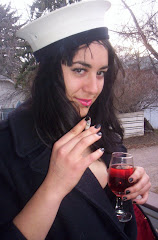However, today when you see her you can tell somethings wrong. Maybe it's because you never seem to ask about her feelings you big jerk! You quickly realize you have been insensitive and not only greet her informally(because she is no longer a stranger), but also ask how she is...
"Здравствуй Сара, как дела?" (zdravstvoo Sara, kak dela?) (Hello Sara, how are you/things?)
Хорошо, спасибо!
You answer "Неплохо". (ne-plohoi) (not bad).
Over the next few weeks you are extra careful to ask Sara how she feels. Her mood seems to change violently from day to day. Give her reply for a week or so using
"очень хорошо (very well)",
"хорошо (well)",
"неплохо (not badly)",
or "плохо (plohoi) (badly)".
Adverbs are the part of speech that answer the question "how?". Notice that these adverbs look very similar to some adjectives that you already learned. The only difference is that there are no masculine or feminine endings on the words. Instead there is and -o ending. Some adverbs can be formed simply by removing the ending and adding "o".
Another way for you to respond in this dialogue is by saying "тоже" (toe-zh) which means "also" but it is implied that you are saying "I am also (whatever mood the other person is in).
I have been told by numerous people that Russians do not throw this question (how are you?)around the way North Americans do. You wouldn't typically ask someone how they were unless you wanted to know all about their current situation.







No comments:
Post a Comment